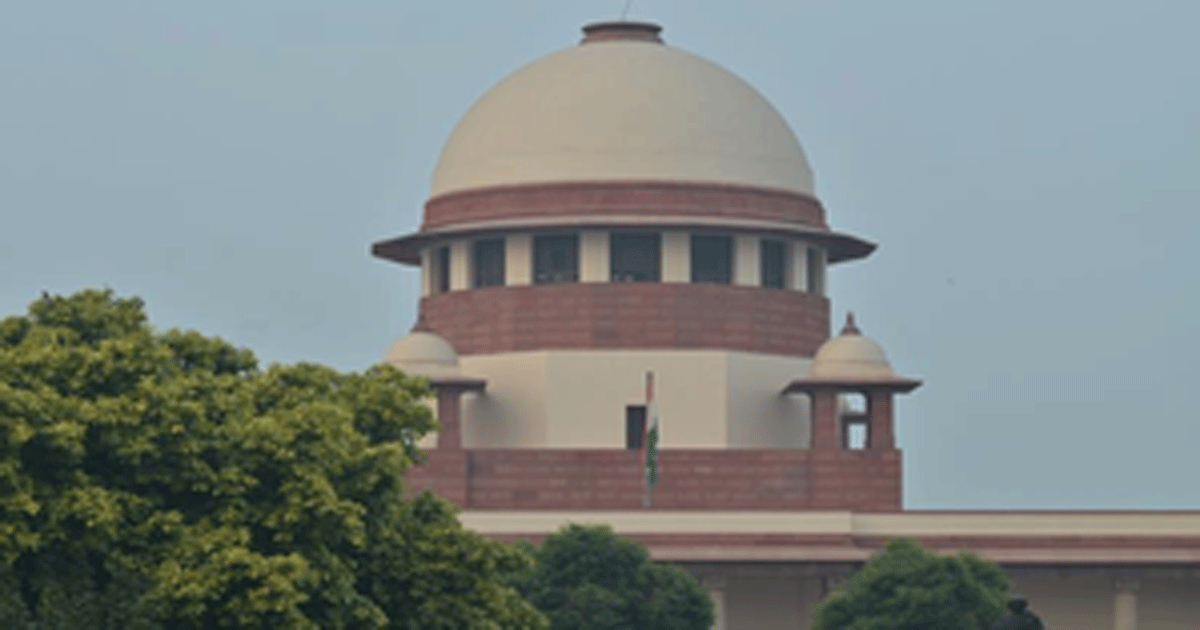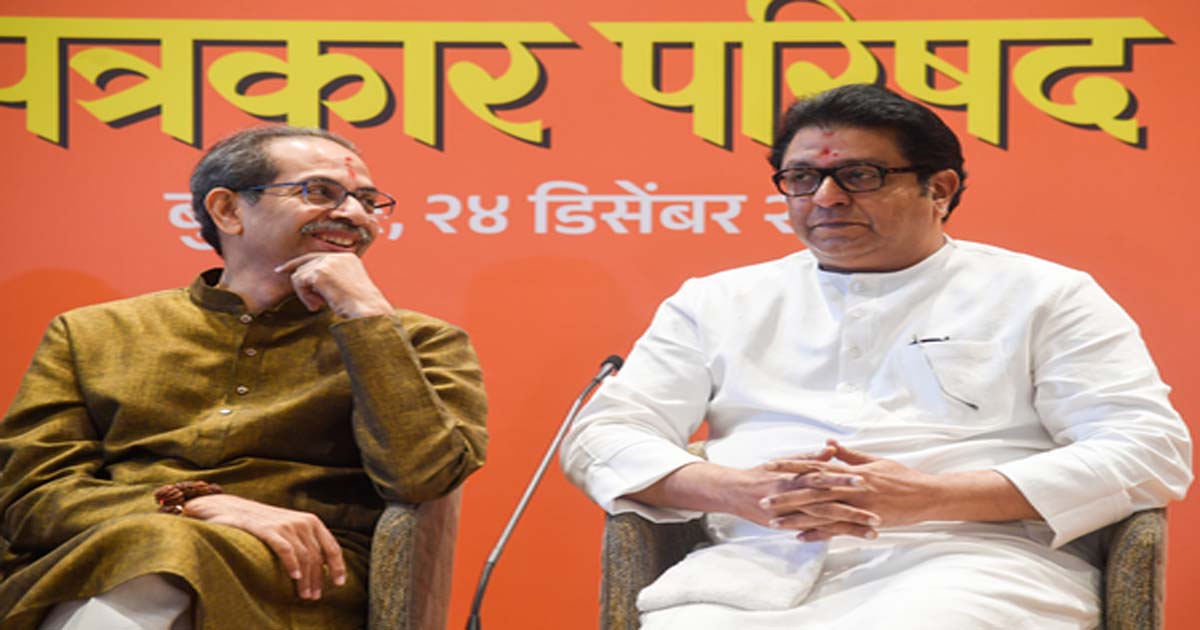National News
Farmers protest: SC grants additional time to Punjab govt to hospitalise Dallewal

New Delhi, Dec 31: The Supreme Court on Tuesday deferred till January 2 the hearing on a contempt plea seeking action against the Chief Secretary of Punjab for not complying with its earlier orders, where the Punjab government was directed to hospitalise farmer leader Jagjit Singh Dallewal.
The 70-year-old cancer patient has been fasting at Khanauri, the border point between Punjab and Haryana, since November 26 in support of their long-pending demands, including a legal guarantee for Minimum Support Price (MSP) for crops, loan waiver and reforms to improve conditions in the agricultural sector.
A Vacation Bench headed by Justice Surya Kant decided to defer the hearing after Punjab’s Advocate General (AG) Gurminder Singh sought additional time to comply with its December 20 decision, where the Punjab government was directed to ensure the stable health condition of Dallewal, who is on a fast unto death.
“It is entirely the responsibility of the State of Punjab to ensure the stable health condition of Mr Jagjit Singh Dallewal, for which if he requires hospitalisation, the authorities must ensure to do so. The State Government, therefore, will take a call as to whether Mr Dallewal can be shifted to the makeshift hospital (temporary hospital, which is said to have been set up at a distance of 700 metres from the site) or to any other well-equipped hospital,” the SC had ordered.
AG Gurminder Singh submitted before Justice Kant-led Bench that a proposal has been submitted before the Union government stating that if the protesting farmers are invited to hold talks, Dallewal will likely accept medical aid.
Adjourning the hearing to January 2, 2025, the Bench, also comprising Justice Sudhanshu Dhulia, said that it was only concerned with the compliance of its judicial orders and nothing else.
In a special sitting on Saturday, the top court pulled up the Punjab government over its failure to ensure the stable health condition of Dallewal.
After the Punjab government stated that other protesting farmers were obstructing the medical aid to Dallewal, Justice Kant-led Bench suggested that it could direct the Union government to provide logistical aid.
The apex court ordered the Punjab Chief Secretary and Director General of Police (DGP) to comply with its directions within two days and posted the matter for hearing on December 31.
It cautioned that if orders are not followed, the Supreme Court will consider framing charges of contempt of court against the officials on the next date of listing.
Earlier, the Supreme Court had issued notice on a plea seeking contempt action against the Chief Secretary of Punjab for not complying with the apex court’s orders.
It said, “Medical aid has to be given (to Dallewal) and the impression is that you (Punjab authorities) are not following our orders.”
Expressing concern over Dallewal’s life and safety, it had ordered the Punjab government to comply with its direction to get him hospitalised.
Before this, the Justice Kant-led Bench said that protesting farmers were free to put their grievances directly before the top court after it was told that the farmer leaders did not attend the meeting with the court-appointed panel.
Remarking that the court’s doors were always open, it said that farmers could put forth their demands directly before the apex court or through their authorised representative.
In September, the Supreme Court ordered the formation of a committee to amicably resolve the grievances of the farmers protesting at the Punjab-Haryana border. It had suggested the panel headed by Justice Nawab Singh, a former judge of Punjab and Haryana High Court, to hold negotiations with the protesting farmers for the removal of their tractors, trolleys, etc., from the National Highway for the ease of the general public.
Further, the apex court had granted liberty to farmers to shift their peaceful protests to an alternative site. Apart from Justice Nawab Singh, the panel comprised former Haryana DGP B.S. Sandhu, agricultural analyst Devender Sharma, Prof Ranjit Singh Ghuman, agricultural economist Dr Sukhpal Singh, and Prof Baldev Raj Kamboj as a special invitee.
National News
Delhi HC asks DDA, MCD to act against illegal cafes, restaurants in Majnu Ka Tila, New Aruna Nagar

high court
New Delhi, Dec 24: The Delhi High Court on Wednesday directed the Delhi Development Authority (DDA), Municipal Corporation of Delhi (MCD) and the city government to take action against cafes, bars, nightclubs, restaurants and hotels operating in Majnu ka Tila and New Aruna Nagar without sanctioned building plans and in violation of safety norms.
A Bench of Chief Justice Devendra Kumar Upadhyaya and Justice Tushar Rao Gedela was hearing a public interest litigation (PIL) flagging concerns over unauthorised commercial establishments functioning in multi-storey buildings along the Yamuna river bank.
The plea sought directions to inspect and act against cafes, hotels and restaurants running without requisite permissions and sanctioned building plans.
It also urged the Delhi High Court to direct the MCD and the Delhi Fire Services to enforce the National Building Code and applicable fire safety measures in the area.
During the hearing, counsel appearing for the DDA informed the CJ Upadhyaya-led Bench that a suo motu complaint has already been registered on the portal of the special task force.
Taking note of the submission, the Delhi High Court disposed of the plea, directing the authorities to take appropriate action under law after reviewing the grievances raised by the petitioners.
“In view of the fact that a suo motu complaint has already been registered by the DDA, we dispose of the petition with a direction to the authorities to take appropriate action which may be warranted under law,” ordered the CJ Upadhyaya-led Bench.
It further directed the civic authorities to take action with expedition, preferably within three months. During the hearing, the Delhi High Court orally remarked that “half of the Delhi University students are there”, urging the authorities to ensure timely action.
In a lighter vein, CJI Upadhyaya observed, “Except the momo cart, everything shall be removed.”
The PIL highlighted that several structures in Majnu Ka Tila and New Aruna Nagar rise to “7–8 floors, with illegal basements, rooftops, and recreational facilities,” contending that the “structural and operational conditions of these buildings create an immediate and life‑threatening hazard.”
The petitioners claimed that most buildings lack staircases beyond the third or fourth floor, leaving “only small, low‑capacity lifts as vertical access.”
Where staircases do exist, they are allegedly “narrow, unlit, and poorly maintained,” and several terraces or rooftops are blocked or enclosed, leaving visitors without any effective evacuation route.
Referring to a recent tragic nightclub fire in Goa, the plea cautioned that it serves as “a stark warning of what could occur in similar circumstances”.
Crime
Two held with heroin worth Rs 1.5 crore in major drug bust in Delhi

New Delhi, Dec 24: In a major crackdown on drug trafficking, the Anti-Narcotics Cell of Delhi Police’s Outer North District has arrested two alleged drug peddlers and recovered 304 grams of fine-quality heroin, valued at around Rs 1.50 crore in the international market, officials said on Wednesday.
The seized contraband falls under the “commercial quantity” category under the Narcotic Drugs and Psychotropic Substances (NDPS) Act.
According to police, the arrests were made on December 21 following a specific tip-off about the movement of drug traffickers in the Narela area.
Acting swiftly on the information, a special raiding team was constituted under the leadership of Inspector Gaurav Choudhary, in-charge of the Anti-Narcotics Cell, and under the guidance of ACP Dinesh Kumar.
The operation was conducted under the supervision of DCP Outer North District Hareshwar Swami, IPS, and overall leadership of Joint Commissioner of Police, Northern Range, Vijay Singh, IPS.
“On conducting the search of their Vehicle (Shine Motorcycle bearing no. DL 5S CX 4), 304 grams of fine quality of Heroin (Commercial quantity) was recovered,” the police said in its press note.
The two accused have been identified as Taslim (23), a resident of New Seemapuri, and Salman Ansari (29), also a resident of New Seemapuri.
Taslim is a driver by profession and is reportedly a drug addict who has been involved in supplying narcotics for a considerable period. Salman Ansari, a tailor by profession, is a repeat offender and has previously been booked under the NDPS Act, police said.
Following the recovery, a case was registered at Police Station Narela under FIR No. 867/25 dated December 21, 2025, under Sections 21, 25 and 29 of the NDPS Act. Both accused were arrested on the spot, and the motorcycle used for transporting the contraband was also seized.
“Both accused persons are currently in custody, and further investigation of the case is going on to dismantle the “backward and forward” linkages of this supply chain to identify the kingpins and distributors involved in this syndicate,” said DCP Hareshwar Swami.
National News
‘Desperate attempt, won’t affect Mahayuti’: BJP mocks Thackeray brothers’ alliance

Mumbai, Dec 24: Maharashtra BJP MLA Ram Kadam has taken a sharp dig at the newly announced alliance between the Thackeray cousins ahead of the Brihanmumbai Municipal Corporation (BMC) elections, asserting that the tie-up will have no impact on the BJP-led Mahayuti and claiming that its flag will continue to fly across Mumbai after the polls.
Shiv Sena (Uddhav Balasaheb Thackeray) chief Uddhav Thackeray and Maharashtra Navnirman Sena founder Raj Thackeray on Wednesday formally announced an alliance for the upcoming BMC and Nashik Municipal Corporation elections.
The move is being seen as a significant political realignment aimed at consolidating the Marathi vote bank and mounting a challenge to the BJP-led Mahayuti.
Reacting to the development, Kadam recalled past differences between the two leaders and questioned the credibility of their reunion.
Speaking to Media, he said, “Twenty years ago, on September 27, 2005, Uddhav Thackeray treated Raj Thackeray so badly that he was forced to leave the party. Today, the same Uddhav is standing at his door with a begging bowl, asking for support. This is what destiny means.”
Kadam further dismissed the electoral impact of the alliance, claiming that public rallies and emotional appeals would not convert into votes.
“There will be crowds during their campaigns, but it will not translate into votes. There will be emotional appeals to divide Mumbaikars. However, every citizen of Mumbai knows that during Covid-19, Uddhav Thackeray and his government looted the city,” he alleged.
The BJP leader also credited the current pace of development in Mumbai to the leadership of Deputy Chief Minister Devendra Fadnavis.
“All the development you see in Mumbai today has taken place under the leadership of Devendra Fadnavis. Uddhav Thackeray and his government only played the ’20 per cent commission’ game. Because of his arbitrary actions, we could not hold our heads high in Mumbai,” Kadam said.
The alliance between Uddhav Thackeray and Raj Thackeray is being widely viewed as a strategic attempt to counter the BJP-led Mahayuti, especially in Mumbai, where the Marathi vote base has remained divided since the 2022 split in the Shiv Sena.
By projecting a “unified Thackeray family”, the two leaders are seeking to reclaim the traditional Shiv Sainik support base in the civic body elections.
However, Kadam remained confident about the Mahayuti’s prospects and reiterated his dismissal of the alliance.
“Despite both brothers coming together for the BMC polls, only Mahayuti’s flag will fly across Mumbai, as well as the entire state,” he said.
Questioning the political relevance of the Thackeray name, the BJP MLA remarked, “The Thackeray brand no longer exists. Thackeray was a brand only during the time of Balasaheb Thackeray; now, it’s only a surname. If there were a ‘Thackeray brand’ in reality today, they would not have lost the municipal elections. There is no point in making headlines now.”
BJP leader Navneet Rana also called out the alliance and said that it was formed out of “self-interest” and not for the family.
“I want to point out that the way Uddhav Thackeray and Raj Thackeray are coming together today as a family may look good on the surface, like two brothers uniting, but it is driven by self-interest, not love or familial affection. This alliance is purely for political gain and to revive their influence. Uddhav Thackeray’s party, which once had the strength to form the Chief Minister, now ranks last in municipal and local body elections, with very few chairpersons elected,” she told Media.
Meanwhile, political observers describe the tie-up as a “make-or-break” move for both parties. The electoral strategy seeks to combine Raj Thackeray’s influence among core Marathi voters — estimated at around 26 per cent of Mumbai’s electorate — with Uddhav Thackeray’s expanded support base, including Muslim-majority pockets, following his more inclusive positioning during the 2024 Lok Sabha elections.
-

 Crime3 years ago
Crime3 years agoClass 10 student jumps to death in Jaipur
-

 Maharashtra1 year ago
Maharashtra1 year agoMumbai Local Train Update: Central Railway’s New Timetable Comes Into Effect; Check Full List Of Revised Timings & Stations
-

 Maharashtra1 year ago
Maharashtra1 year agoMumbai To Go Toll-Free Tonight! Maharashtra Govt Announces Complete Toll Waiver For Light Motor Vehicles At All 5 Entry Points Of City
-

 Maharashtra1 year ago
Maharashtra1 year agoFalse photo of Imtiaz Jaleel’s rally, exposing the fooling conspiracy
-

 National News1 year ago
National News1 year agoMinistry of Railways rolls out Special Drive 4.0 with focus on digitisation, cleanliness, inclusiveness and grievance redressal
-

 Maharashtra1 year ago
Maharashtra1 year agoMaharashtra Elections 2024: Mumbai Metro & BEST Services Extended Till Midnight On Voting Day
-

 National News1 year ago
National News1 year agoJ&K: 4 Jawans Killed, 28 Injured After Bus Carrying BSF Personnel For Poll Duty Falls Into Gorge In Budgam; Terrifying Visuals Surface
-

 Crime1 year ago
Crime1 year agoBaba Siddique Murder: Mumbai Police Unable To Get Lawrence Bishnoi Custody Due To Home Ministry Order, Says Report












